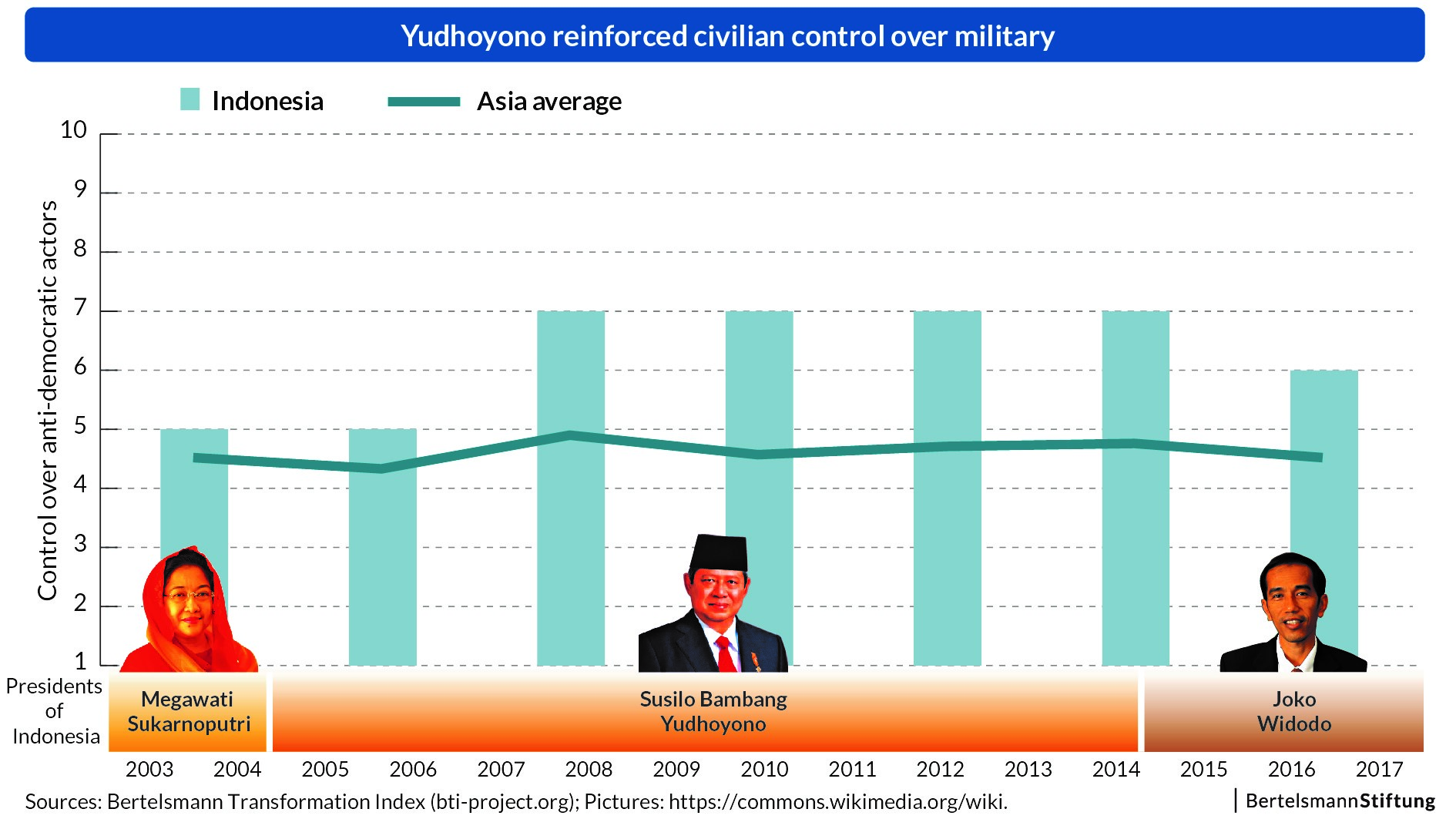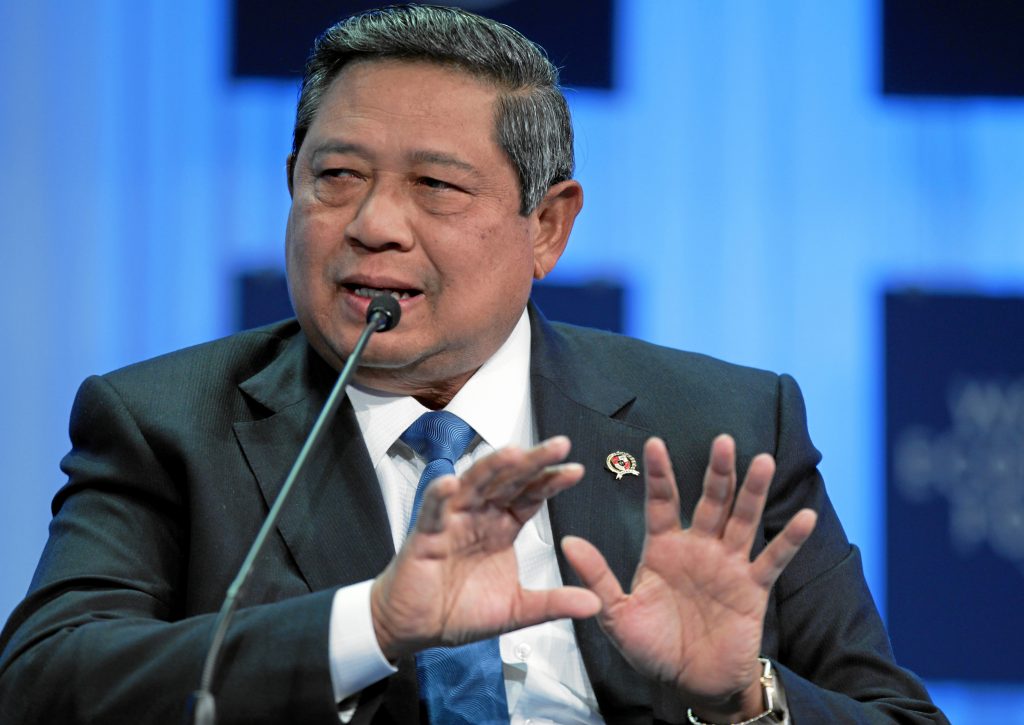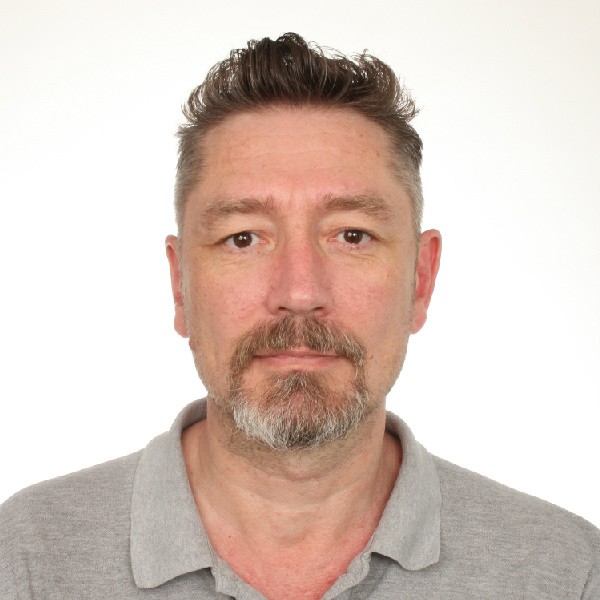“Islamic Values Are Compatible with Democratic Values”
BTI Blog spoke with Susilo Bambang Yudhoyono, president of the Republic of Indonesia during the “golden decade” from 2004 to 2014, about the lessons from his military reform, the relationship between Islam and democracy, and the appeal of democracy among members of the Association of Southeast Asian Nations (ASEAN).
BTI Blog: Your Excellency, President Yudhoyono, what is the secret of success of Indonesia’s military reform under your presidency? What can new democracies in Asia learn from your experience?
Susilo Bambang Yudhoyono: To be frank, our military reform was very challenging. It was not easy but we had to do it. Firstly we had to define the ultimate objective, the goals and why the military reform should be conducted. And I remember when leading a team to draw the blueprint and roadmap I set clear objectives. Number one: the military must stop playing practical politics. Number two: the military must respect and support democracy. We had to win acceptance and support for that within the military. I talked to all generals that we have to change. I explained the objectives, the steps to be taken, the roadmap and also the blueprint. And I was happy because 70% of the generals and high-ranking officers supported the idea of reform. Next I had to talk to the reformists, the civil society. I asked them to give us time to prepare our change because the reform must have clear objectives, must be well managed, and the agenda must also be clear.
“We demonstrated to the elements of the old regime: Look, we have reformed ourselves.”
After around one year’s time, by very intensive work, day and night, finally we did our reform. Later on when I left my military career, entered politics and became president of Indonesia, my task was to safeguard the military reform, to ensure that it will go ahead and reach the overall objective that we had set up before. The military was not only supporting the national reform, but we were part of the reform, we were part of the solution. We demonstrated to the elements of the old regime: Look, we have reformed ourselves. We could do it. Why don’t we work together to reform our country for the better future? More democratic and more people-oriented.

BTI Blog: Fascinating. Indonesia is the largest Muslim nation in the world and at the same time a very inspiring example of democracy. As a democratic leader of Indonesia, what is your vision of Islam and democracy in the 21st century?
Yudhoyono: Islam must be fully understood by friends around the globe because Islam is mostly misunderstood by non-Islam and by Islam itself. There are Islamic values that in my view are compatible with democratic values. For example, Islam, by our teaching, loves peace, loves justice, loves consensus-building, loves prosperity, and loves equality. And those are actually also democratic values. So we try to convince our Muslim ummah: Look, our religious values are very much similar to democratic values. Moreover, more than 40% of political parties in Indonesia are Islamic-based. They respect universal values, they respect the nation state, not a borderless Islamic world. They’re a platform also quite relevant to the national agenda, the national policy. So we could say to the people: Look, our Islamic political parties are part of democracy itself, so why don’t we do things that not contradict Islam and democracy.
Of course, like in many other Islamic countries, there are hardliners or radicals who say that Islam is not compatible with democracy, but their number is small. It is the duty and the responsibility of the religious leaders, of moderate Islamic leaders, to explain to the ummah that Islam is compatible with democracy. Democracy can be well applied in our politics, in our system. There are many approaches to ensure that there is a good harmony between Islam and democracy. And it works in Indonesia.
BTI Blog: It’s truly remarkable. During your presidency Indonesia played a very important role as facilitator for democracy in ASEAN. What can be the role of statesmen like you to strengthen democracy within ASEAN?
Yudhoyono: We need to accept the reality that ASEAN’s ten member countries vary in terms of political systems. ASEAN must be able to work together while respecting the diversity among the member countries. It was a historic moment when we were able to renew our ASEAN charter. I have been involved personally in this process. The new charter clearly states that ASEAN respects democracy, respects rule of law, and respects human rights. I think it is a dramatic achievement.
“I do believe that someday all countries will fully respect democracy, the rule of law and human rights.”
But of course: among us, the members of ASEAN, some have a communist ideology, centralism, exercising authoritarian or semi-authoritarian types or government, one of our members is a monarchy, and some exercise democratic values. So even though we have our written charter with the respect for democracy, human rights and the rule of law, I personally think that we need more of a transition. I do believe that someday all countries will fully respect democracy, the rule of law and human rights.
Interview: Aurel Croissant. The interview was conducted at the “Next Generation Democracy” conference of the Club de Madrid in Díli, Timor-Leste, on 31 July 2017.
Susilo Bambang Yudhoyono has been the sixth President of the Republic of Indonesia (2004-2014) and previously 4-star general in the armed forces. As leader of the country with the world’s largest Muslim population, Yudhoyono has become a strong advocate for peaceful and moderate Islam.

